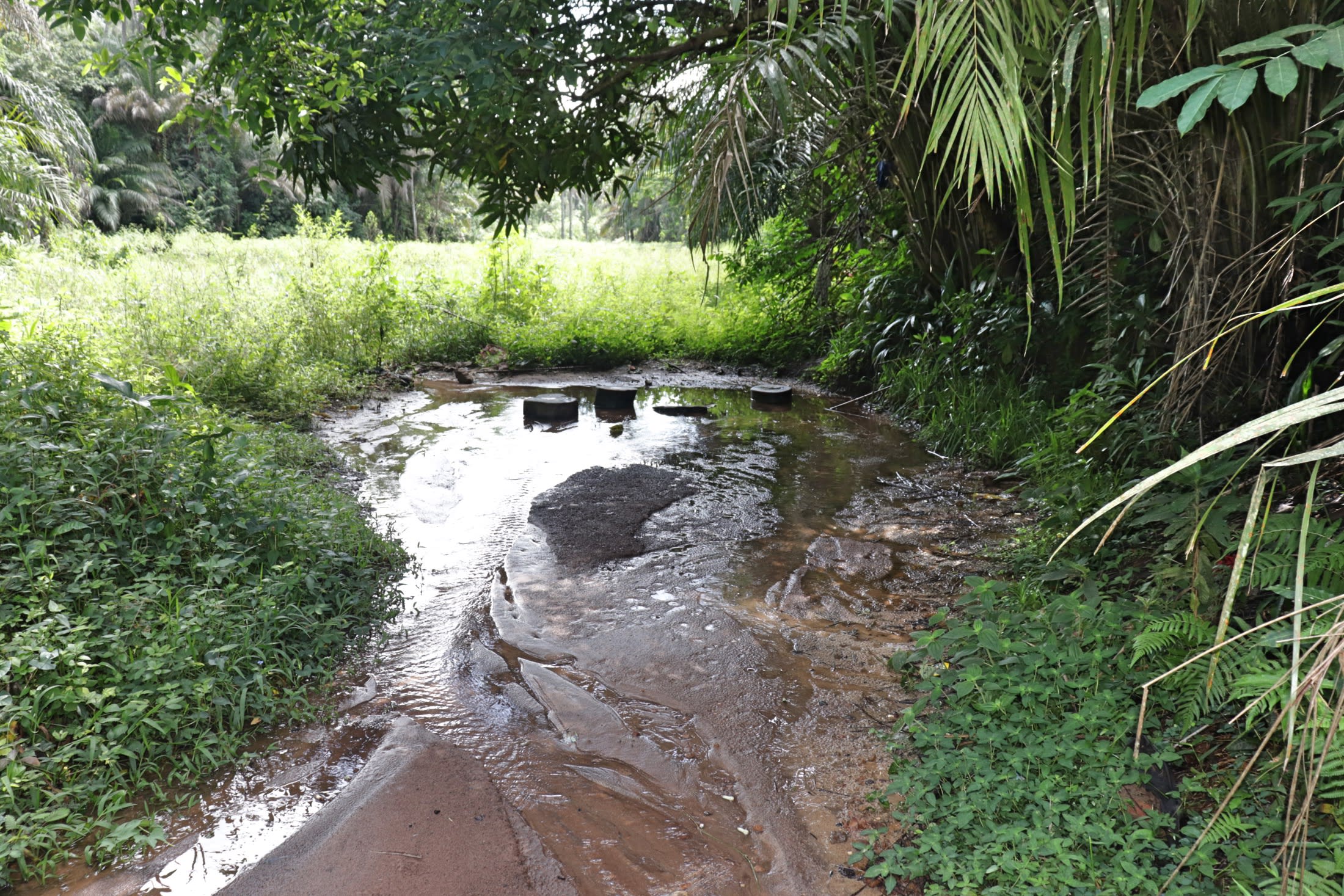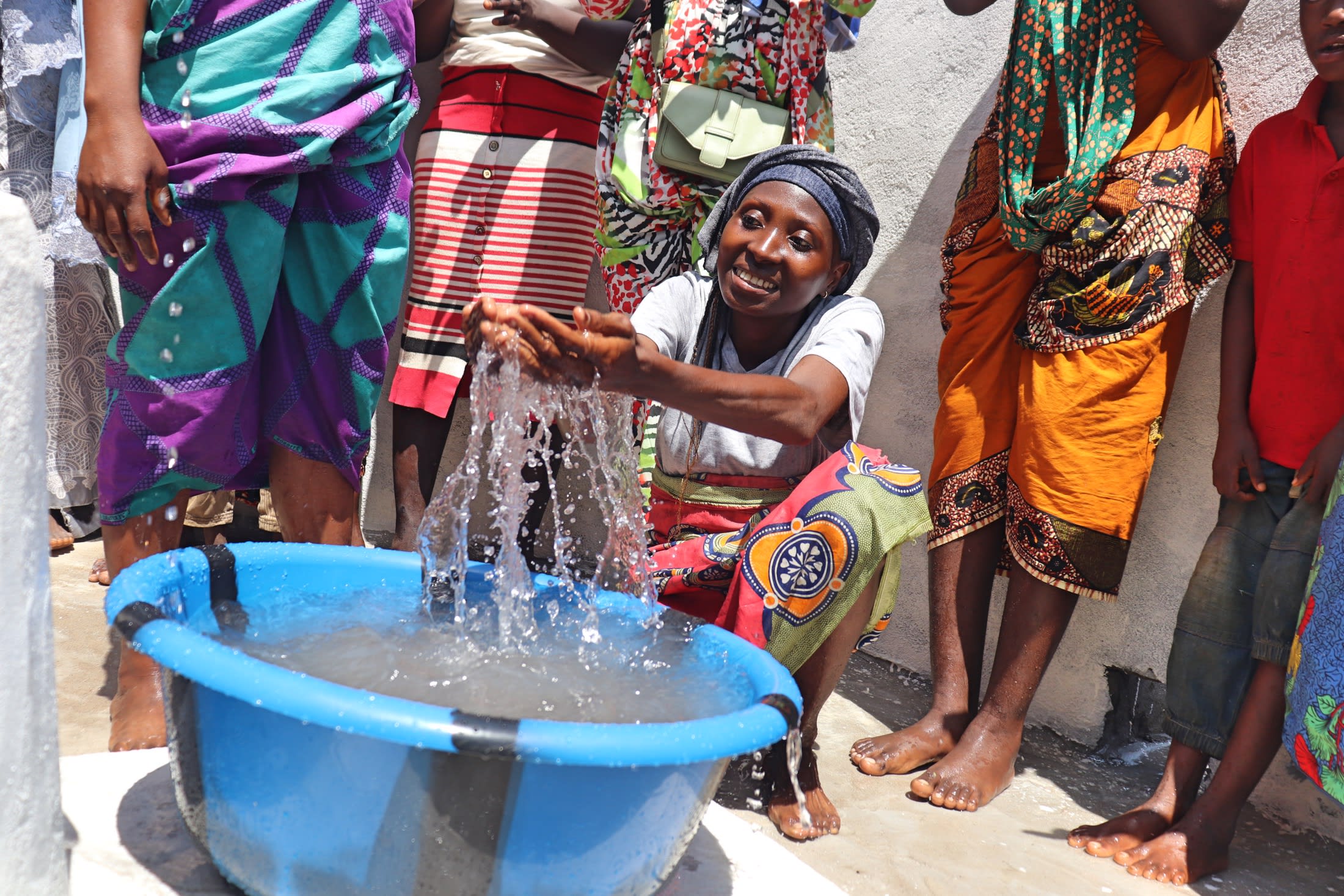Kirma's 115 people only have one polluted source of water, and in recent years, it has begun to disappear a few months out of each year, leaving them no option but to purchase water - an option which most people in this community can't afford.
Even when the stream they collect water from is overflowing, it is still a terrible water source. Not only is it at least 30 minutes by foot from the village, but it is contaminated, infecting people with cholera, dysentery, and parasites.
"We, as children from this community, have to walk for more than a mile by foot to get water from the stream to use for domestic purposes," said 17-year-old Aminata S. (pictured below).

The water source is hard to access because it is located on the other side of the community, so women and children, who do the most water-fetching in sub-Saharan Africa, must cross the busy Main Port Loko Highway to get water. A few people in recent years have been hit by careless drivers. But the path also winds through congested bushy areas, and people on the way to or from the water point have been attacked by venomous snakes, scorpions, and stray dogs.
"The current water situation has a negative impact on my life as an individual," said 25-year-old farmer Wurie Sow (pictured below fetching water).

"The water is not safe for drinking," Wurie continued. "The water challenges affect us predominantly in domestic activities, such as cooking, laundry, bathing, growing our farming crops, and sometimes it really affects our children, more especially our young girls living in this of our community. [A] majority of them have [become] pregnant [due to] young men roaming around the water source. And the poor water quality affects various aspects of our society, like the spread of diseases."
"When we went to the water source, they dug out a pit under a rock so hopefully the water [could] be filtered through the sand so they will have a little cleaner water," said our field officer Moses. "There are [a] lot of contaminants: things like old clothes; old, slippery, rotten, decayed leaves; trees; and animal feces around the water source environment."

The stream is frequently accessed by domestic and wild animals, and is also surrounded by farms that use fertilizer and pesticides. The water is white and cloudy. Soap and detergent easily seep through the ground and into the bellies of those living here who have no other option for water.
Drinking this contaminated water has the worst effect on the children in the community.
"The contaminated stream we used as a source of drinking water exposes us to cholera and other water-related diseases," Aminata said. "In this community, we have been forced to drink, bathe, wash our clothes, and more in the same water we use. Providing clean water for us will help us to have clean water to drink, to grow vegetables, cook, bathe and feed [our] animals. In doing so, it will be helping us physically, mentally and giving [us] a gift of life."
What We Can Do:
New Well
Where we will be drilling is centrally located and will relieve many people of the long journey to fetch water and the challenge of accessing clean water.
Our team will drive over the LS200 mud rotary drill rig and set up camp for a couple of nights. Once the well is drilled to a sufficient water column, it will be cased, developed, and then tested. If these tests are positive, our mechanics will install a new India Mark II pump.
By drilling this borehole, the surrounding community will be provided with plenty of accessible, clean drinking water.
Training
There will be hygiene and sanitation training sessions offered for three days in a row.
Community members will learn how to make a hands-free handwashing station called the "tippy-tap." We will use these tippy taps for handwashing demonstrations and will also teach about other tools like dish racks and the importance of properly penning in animals. We will highlight the need to keep restrooms clean, among many other topics.
This training will also strengthen a water user committee that will manage and maintain this new well. They will enforce proper behavior and report to us whenever they need our help in solving a serious problem, like a pump breakdown.






 Borehole Well and Hand Pump
Borehole Well and Hand Pump
 Rehabilitation Project
Rehabilitation Project




























